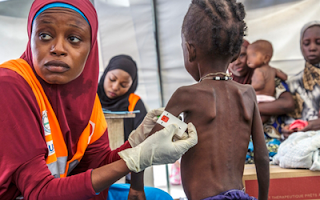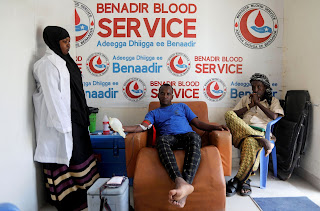UNICEF is seeking USD7 million to combat severe malnutrition in Somalia
MOGADISHU: The United Nations Children's Fund (UNICEF) has requested USD7 million by the end of March to help 1.4 million Somali children who are at risk of acute malnutrition.
According to sources, UNICEF announced on Tuesday that the funds will be used to purchase 104,000 cartons of Ready-to-Use Therapeutic Foods (RUTF) to treat children with severe acute malnutrition and prevent deaths.
"The numbers we're witnessing this year are pretty significant, and hundreds of children are at risk of dying unless urgent actions are taken," UNICEF Representative Angela Kearney said in a statement made in Mogadishu, Somalia's capital. According to Kearney, a probable breach in the supply pipeline might result in a severe shortage of RUTF starting in June, putting the lives of over 1,00,000 infants in jeopardy.
According to UNICEF, more than 1.4 million children in Somalia, or over half of the country's under-five population, are at risk of acute malnutrition as a result of the prolonged drought, which has left 4.1 million people on the verge of starvation. According to the most recent Somalia Food Security and Nutrition Assessment, almost a quarter of the 1.4 million children, or 3,29,500 children, will be severely malnourished this year.



